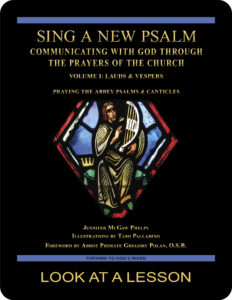we give thanks
 In the opening of his First Letter to the Thessalonians, Paul gives us an interesting and important insight into the attitude of the early Christian community and suggests a mentality and approach we should strive to continue today.
In the opening of his First Letter to the Thessalonians, Paul gives us an interesting and important insight into the attitude of the early Christian community and suggests a mentality and approach we should strive to continue today.
The First Letter to the Thessalonians 1:2 (NABRE) reads: “We give thanks to God always for all of you, remembering you in our prayers.” The Greek word translated as “we give thanks,” εὐχαριστέω (eucharisteo), is the verb form from the same Greek root that gives us the English word Eucharist. The name of our sacrament literally means thanksgiving and roots its origins in a particular type of Old Testament offering outlined at various places in the book of Leviticus and elsewhere.
As we see in this verse, the early Christian community embraced this spirit and attitude of thanksgiving and let in permeate every facet of their lives and relationships with one another. Do we do the same? Are we able to find reasons to be thankful in these trying times? Do we show this gratitude toward God and toward others?
you also may like Volume I of our Psalms study
 Sing a New Psalm: Communicating with God Through the Prayers of the Church—Volume I: Lauds & Vespers provides an in-depth look at Psalms prayed in morning and evening liturgies. (Volume II, set for publication in 2024, looks at Vigils, Day Prayer & Compline.) The study is based on The Abbey Psalms and Canticles, a translation prepared by the Benedictine monks of Conception Abbey and published by the United States Conference of Catholic Bishops (USCCB). Click on the book’s cover to view a sample lesson.
Sing a New Psalm: Communicating with God Through the Prayers of the Church—Volume I: Lauds & Vespers provides an in-depth look at Psalms prayed in morning and evening liturgies. (Volume II, set for publication in 2024, looks at Vigils, Day Prayer & Compline.) The study is based on The Abbey Psalms and Canticles, a translation prepared by the Benedictine monks of Conception Abbey and published by the United States Conference of Catholic Bishops (USCCB). Click on the book’s cover to view a sample lesson.
 Click on the picture of the statue of Moses with horns (above) to learn more about Lost in Translation. A new entry is archived each Monday. Contact us to receive Lost in Translation by email every week. You may use any of the contact links on our website to ask Matthew a question.
Click on the picture of the statue of Moses with horns (above) to learn more about Lost in Translation. A new entry is archived each Monday. Contact us to receive Lost in Translation by email every week. You may use any of the contact links on our website to ask Matthew a question.
